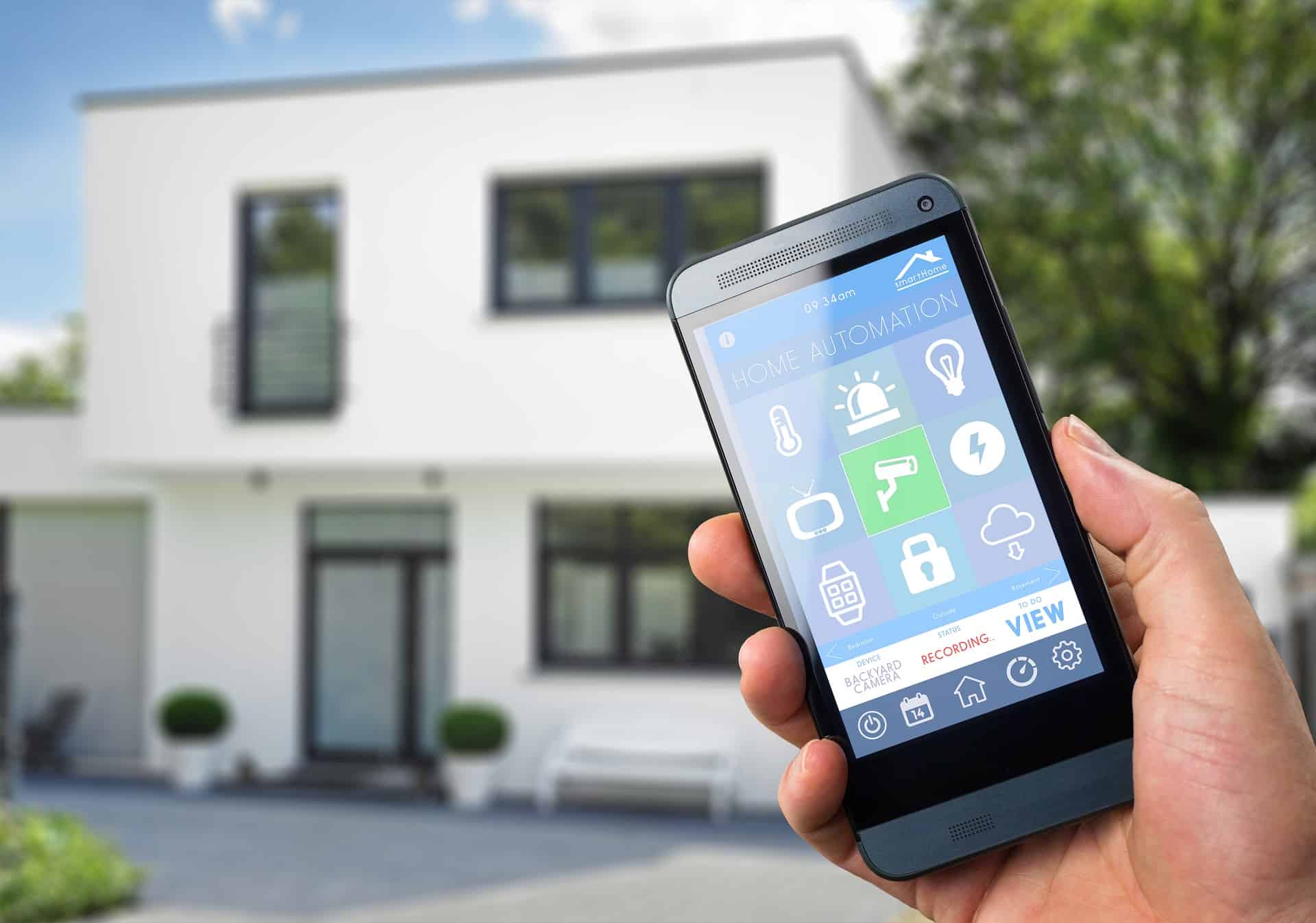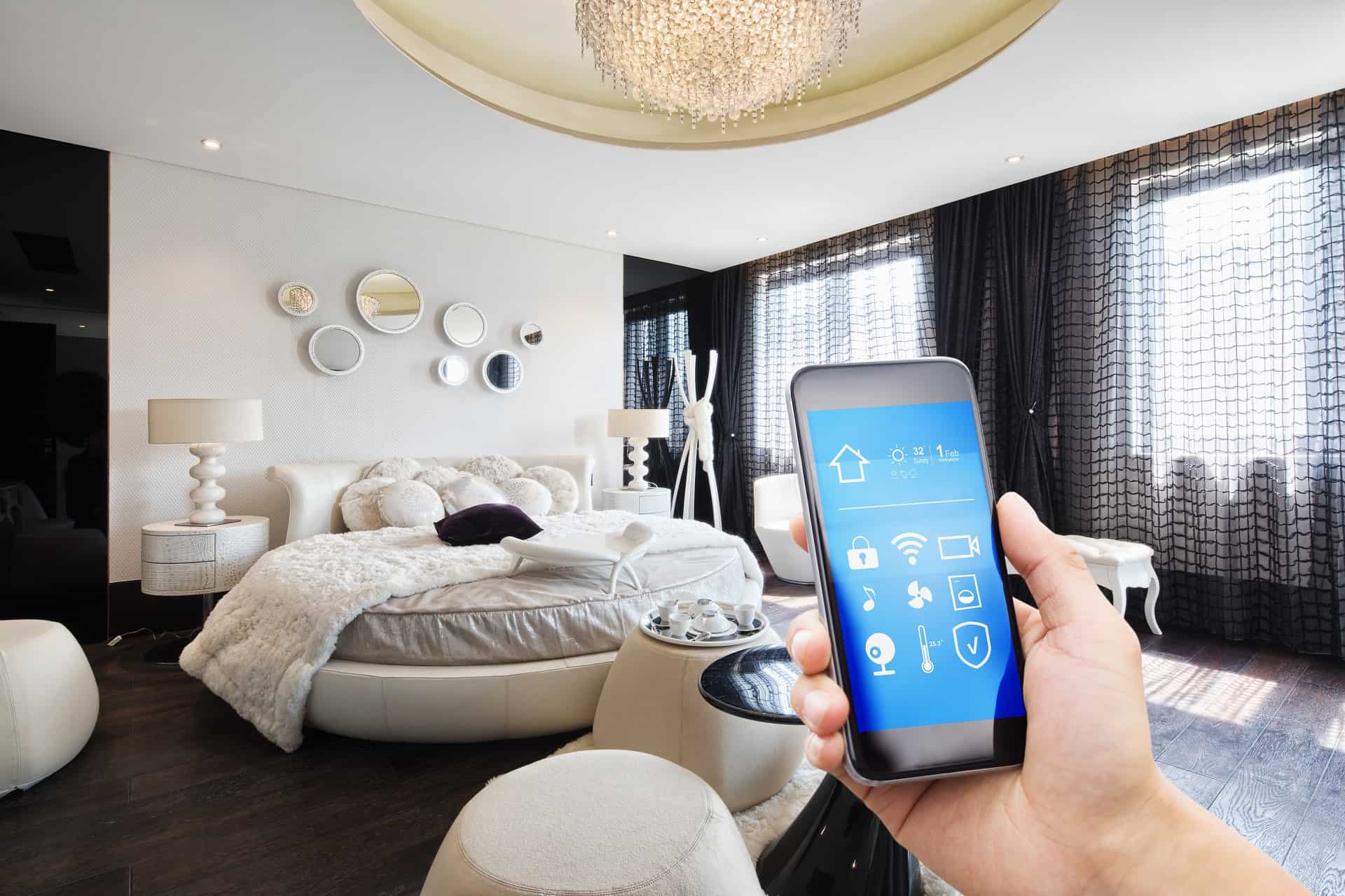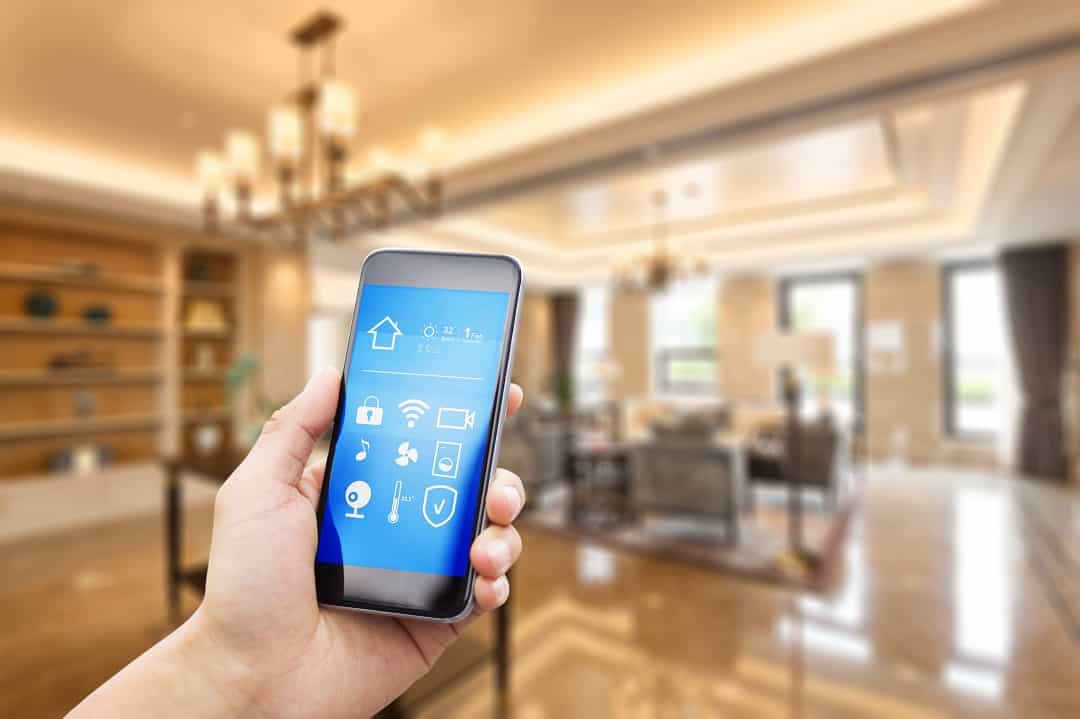If you’ve ever wondered how technology can make your life easier, more convenient, and even more secure, then this post is for you. We’ll be diving deep into the world of smart homes and exploring the benefits of smart home technology. From controlling your lights and temperature with a simple voice command, to having your coffee ready the moment you wake up, the possibilities are endless. So, whether you’re a tech enthusiast or just dabbling, keep reading to discover the incredible advantages that await you with a smart home.
What is a smart home?
A smart home is a residence that utilizes various connected devices and technologies to enhance convenience, comfort, and security. These devices are interconnected through a central hub and can be controlled remotely via smartphone apps or voice commands. With a smart home, you can automate and control different aspects of your house, such as lighting, temperature, security systems, entertainment systems, and even smart appliances. This level of automation allows for a more seamless and integrated living experience, where you can have greater control over your home environment and simplify daily tasks. Additionally, smart homes often offer energy-saving benefits, as you can optimize and monitor energy consumption more efficiently.
Smart Home Benefits
Smart homes have become increasingly popular in recent years due to the numerous benefits they offer. One of the major advantages of a smart home is the increased convenience it provides. With smart home automation systems, you can control various aspects of your home with just a few taps on your smartphone or voice commands. You can turn on and off lights, adjust the temperature, and even start your coffee maker in the morning, all without having to get out of bed.
The four main benefits of having a smart home are:
- comfort and convenience
- increased security
- flexibility and customization
- energy efficiency
Convenience
Smart homes offer a range of benefits that can greatly enhance your lifestyle. One of the most convenient features is voice control. With voice control, you can simply speak commands to control various devices and appliances in your home. Whether it’s turning on the lights, setting a timer, adjusting the thermostat, or playing your favorite music, voice control makes it effortless and hands-free.
Another feature that’s high on the convenience and comfort list is being able to automate things. Most smart systems have some sort of home automation devices in them that allow things to just happen. Imaging being able to automate your lights to turn on at dusk, your blinds to slowly open in the morning as you awaken, and your thermostat to automatically turn down when you leave the house. Automation is a huge benefit to having a smart home, allowing things to just “happen”.
Security
Another significant benefit of a smart home is enhanced security. A smart security system allows you to monitor your home remotely and receive real-time notifications via your mobile device if any suspicious activity is detected. You can also integrate smart door locks, video doorbells, motion detectors, and surveillance cameras for added protection. These features not only give you peace of mind but also act as a deterrent to potential intruders, making your home safer.
Flexibility and Customization
Another huge benefit of having a smart home is how easy it is to customize it to you and your family’s needs. Smart homes can recognize different people and their needs, for instance knowing one person’s calendar vs another or knowing one person’s music preferences vs another person’s. This allows each person to have some settings like a favorite playlist or light brightness level just the way they like it.
Energy Efficiency
A smart home can greatly enhance energy efficiency in your home. By integrating various smart devices and appliances, you can control and automate things like window blinds, thermostat controls, lights, and more. This means you no longer have to manually adjust thermostats, turn lights on and off, or worry about opening and closing the blinds. Additionally, smart home systems can learn your habits and preferences over time, allowing them to anticipate your needs and automatically adjust settings to optimize energy usage. This not only saves you time and effort but also helps reduce energy waste, leading to lower utility bills. One recent study on smart shades showed that automating just your blinds can lead to a 13% reduction in energy costs!
FAQ
What are some examples of smart home devices?
There are a wide variety of smart home products available on the market today. Some popular examples include:
- smart thermostats
- alarm systems
- lighting systems
- garage doors
- smart locks
- smart speakers
- smart doorbells
- smart plugs
- … and more!
How secure are smart home devices?
Smart home devices have come a long way in terms of security measures, making them more secure than they used to be. Manufacturers are aware of the importance of keeping personal data and devices safe, so they implement various security features. For example, most smart home devices use encryption protocols to ensure that data is transmitted securely. Additionally, they often require authentication for access, such as passwords or biometric identification, adding an extra layer of protection.
One key way you can help keep your smart home devices secure is to make sure they support the new Matter standard. It’s also crucial to choose reputable brands and keep devices updated with the latest firmware to ensure maximum security. While no system is entirely foolproof, the advancements in smart home security provide peace of mind for users.
Are there any privacy concerns with smart homes?
Yes, there can be privacy concerns with smart homes, but there are measures you can take to mitigate them. When it comes to privacy, the main concern is the potential for unauthorized access to your smart home devices and data. However, you can protect yourself by following some best practices. To start, you’ll want to be sure you’ve secured your Wi-Fi network with a strong password and enabled encryption. Be sure to regularly update your smart devices with the latest firmware to fix any security vulnerabilities. Then for any vendor apps, be sure to use unique passwords for your accounts and enable two-factor authentication if available. Finally, be cautious when granting permissions to third-party apps and services. By taking these precautions, you can enjoy the benefits of a smart home while maintaining your privacy and security.
Can a smart home be controlled remotely?
Yes, most smart homes can be controlled remotely. With the advancements in technology, you can now easily manage and monitor your smart home devices from anywhere in the world using your smartphone or tablet. Whether you’re at work, on vacation, or simply lounging on the couch, you have the power to control your lights, thermostats, security cameras, and more with just a few taps on your device. It also allows you to double check the status of devices, like if you closed the garage door or not. This remote accessibility not only provides convenience and peace of mind but also allows you to adjust settings and schedules to optimize energy usage and enhance home security even when you’re not physically present.
What are the potential drawbacks of having a smart home?
While there are numerous benefits to having a smart home, it’s important to be aware of a few potential drawbacks as well. One possible drawback is the initial cost of setting up a smart home system. While prices for smart home devices have become more affordable over the years, building a comprehensive smart home network can still require a significant investment. Additionally, some people may have concerns about the privacy and security of their smart home devices. It’s crucial to ensure that your smart home network is properly secured and protected to prevent any potential hacking or privacy breaches. Lastly, another drawback is the reliance on technology. If there is a power outage or a malfunction, certain functions of your smart home may not work until the issue is resolved.
How easy is it to set up and install smart home devices?
Setting up and installing smart home devices is easier than you might think! Most smart home devices are designed to be user-friendly and can be set up in just a few simple steps. Many devices come with their own mobile apps that guide you through the installation process, providing step-by-step instructions and helpful visuals. Additionally, smart home devices often use wireless technology like Wi-Fi or Bluetooth, eliminating the need for complicated wiring or professional installation. With just a few taps on your smartphone or tablet, you can connect and configure your smart home devices to your preferences. So, whether you’re tech-savvy or a beginner, setting up and installing smart home devices is a breeze!
Are smart home devices compatible with each other?
Most smart home devices are compatible with each other. One of the major advantages of creating a smart home is the ability to connect and control various devices from different brands and manufacturers. Many smart home platforms, like Amazon Alexa or Google Assistant, support a wide range of smart home technologies, allowing you to integrate smart lights, thermostats, security cameras, and more into one cohesive system. This means you can control all your devices using a single app or voice command, making it convenient and efficient. Additionally, smart home protocols like Zigbee or Z-Wave provide interoperability between devices, ensuring compatibility even if they are not directly connected to a central hub. Just be sure to check any new devices to be sure that they work with the hub of your choice.
Can a smart home be customized to individual preferences?
Yes, a smart home can definitely be customized to individual preferences. One of the great advantages of a smart home is its flexibility and adaptability to suit your specific family member needs and preferences. With the use of smart devices, you can easily customize and personalize your home automation system to match your lifestyle and preferences. Whether it’s adjusting the lighting levels, setting the temperature just right, or creating custom scenes for different occasions, a smart home allows you to have complete control over your environment. You can also integrate various smart devices and technologies, such as voice assistants, smart thermostats, and smart security systems, to create a personalized and tailored experience that meets your unique requirements. The possibilities are endless when it comes to customizing a smart home to cater to individual preferences.
What is the future of smart home technology?
The future of smart home technology is incredibly promising. With advancements in artificial intelligence, voice control, and the Internet of Things, smart homes are becoming more intuitive and seamlessly integrated into our daily lives. Imagine waking up to a house that knows your preferred temperature, has brewed your morning coffee, and has already started playing your favorite music. Smart home technology will continue to evolve, offering even greater convenience, energy efficiency, and security. We can expect to see more devices and appliances connected to the internet, allowing for remote control and monitoring. The possibilities are endless, and the future of smart homes is set to revolutionize the way we live.
Can a smart home increase the value of a property?
Yes, a smart home can definitely increase the value of a property. In fact, studies have shown that homes equipped with smart technology tend to sell at higher prices compared to traditional homes. This is because buyers are increasingly looking for homes that offer convenience, energy efficiency, and enhanced security. A smart home offers all of these benefits and more. From being able to control appliances, lighting, and heating remotely to having a robust security system that can be easily managed through an app, smart homes provide an added layer of convenience and peace of mind. As technology continues to advance, the demand for smart homes is only expected to increase, making it a wise investment for homeowners looking to boost their property’s value.
In Summary
Thank you for taking the time to read this blog post on the benefits of smart homes. Smart homes have the power to revolutionized the way we live, making our lives more convenient, efficient, and secure. From voice-activated assistants to automated security systems, there are endless possibilities when it comes to creating a smart home. Whether you are a tech enthusiast or just looking for ways to simplify your daily routine, smart home technology offers something for everyone.




